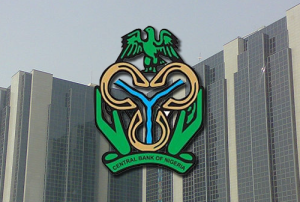 The ongoing regulatory chess game taking place between two of our major regulatory bodies, the Financial Reporting Council of Nigeria and Central Bank of Nigeria, over the financial statements of one of the major players in the Nigerian capital market, Stanbic IBTC, has reached a fever pitch in the entire regulatory industry. By trying to outdo one another in private as well as in public, the protagonists have even managed to mire the Presidency (through the Chief of Staff), in the miasma of statements and counter-statements. At first glance, it appears rather unseemly for the major regulatory bodies to be such at odds with each other on such a crucial issue of financial reporting. On a closer inspection, though, it could be seen as transparency in action, the end result of which could only serve to inspire more, not less confidence in Africa’s largest economy. Either way, the controversy is an opportunity to allay fears, clarify positions and lay down some ground rules moving forward.
The ongoing regulatory chess game taking place between two of our major regulatory bodies, the Financial Reporting Council of Nigeria and Central Bank of Nigeria, over the financial statements of one of the major players in the Nigerian capital market, Stanbic IBTC, has reached a fever pitch in the entire regulatory industry. By trying to outdo one another in private as well as in public, the protagonists have even managed to mire the Presidency (through the Chief of Staff), in the miasma of statements and counter-statements. At first glance, it appears rather unseemly for the major regulatory bodies to be such at odds with each other on such a crucial issue of financial reporting. On a closer inspection, though, it could be seen as transparency in action, the end result of which could only serve to inspire more, not less confidence in Africa’s largest economy. Either way, the controversy is an opportunity to allay fears, clarify positions and lay down some ground rules moving forward.
There are three issues at stake in this public spat: StanbicIBTC’s obligation to file a fair and accurate financial statement; the FRC’s statutory obligation to certify the report, and the CBN’s statutory obligation to supervise the bank in question; StanbicIBTC. There appears to be an overlap between the roles of the FRC and the CBN. This is what may have affected the judgment of some of the protagonists in this matter, but this overlap is more apparent than real. The two bodies have and must maintain their distinctive roles. The FRC’s role starts and ends with “financial reports”, while that of the CBN is more far-reaching: it is “supervisory” in nature. The other interested party in this is, of course, the Securities and Exchange Commission, which has a statutory obligation to maintain a healthy capital market of which StanbicIBTC is a major player. This triangular regulatory framework is laid out on purpose; it is to ensure sufficient institutional checks on the banks without allowing neither of them to be particularly overbearing on the commercial institutions that must be allowed to operate with as much ease as is necessary in a market economy. Leaving aside the substance of the FRC’s allegation of misrepresentation against StanbicIBTC for now, the FRC Act of 2011 clearly empowers the Council to “enforce and approve enforcement of compliance with accounting, auditing, corporate governance and financial reporting standards in Nigeria” (Section 7 (2)(a) ). Neither the CBN nor any other regulatory body for that matter has the right to subsume the FRC’s judgment on this matter. Furthermore, the Council is empowered to “review, promote and enforce compliance with the accounting and financial reporting standards adopted by the Council” (Section 8 (1) (b) ). In other words, if the Council does not think that a bank under scrutiny has complied with its rules, that judgment is theirs alone to make. There can be no derogation from this authority, or the Council loses its legitimacy. They are charged with the responsibility of advising the President of the Federal Republic of Nigeria “on matters relating to accounting and financial reporting standards” (Section 8 (1) (e) ). The FRC’s word on financial reporting standard in this country is as clear as daylight.


Thank you Uncle JD for providing the platform for us to read a thought provoking and master piece from Tayo Oke. I agree with all said, a technical issue of this magnitude should not be a matter of nollywood affairs for shots in the media. As professions, they should lock up themselves in a room and come out with harmonised position to move forward. As par NA, do they understand their roles in the modern society to deliver public goods. Time will tell.